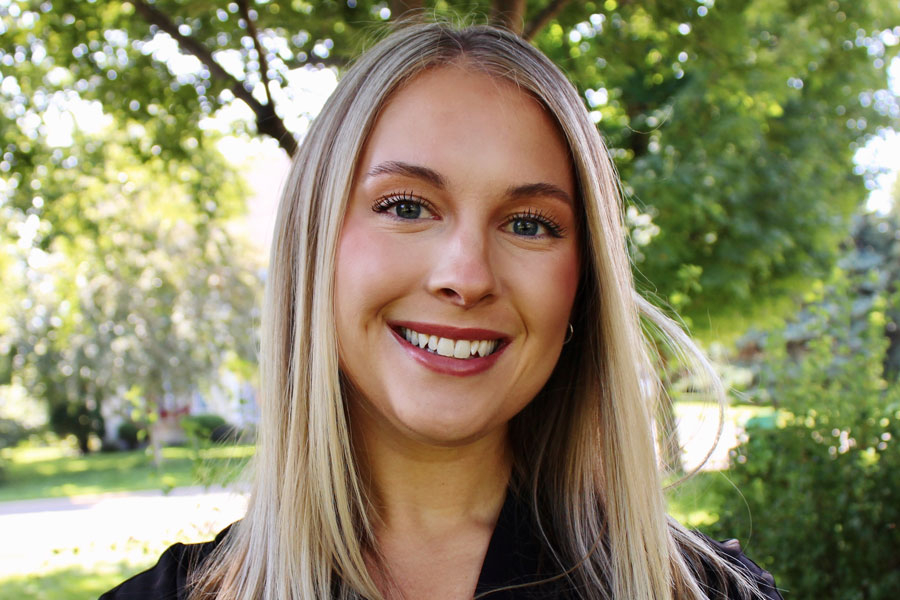On the Crossroad of Tech and Development

Maura Joul
MA IDEV
What encouraged you to apply to Johns Hopkins SAIS?
I was interested in attending SAIS because I wanted to improve my quantitative skills while also learning more about the intersection of international development, technology, and China. SAIS offered a diverse range of international development courses and faculty, as well as a number of technology-related classes that sounded intriguing. The secondary economics concentration was also a big draw for me, and I knew that the robust econ curriculum would set me apart from my peers at other schools.
What were you doing before attending the school?
Before coming to SAIS, I was a Peace Corps Volunteer in China. I was teaching English at a teacher's college in Tianshui, Gansu, and was about seven months into my Peace Corps service when COVID-19 hit, and I was sent back to the United States.
What program are you in and what do you hope to gain from it?
I am an MA student concentrating in International Development. I was eager to learn more about the role and impact of technology in development work after living in China. My initial enthusiasm for technology as a tool for good was quickly tempered by the fact that we now live in a world where technology is increasingly used to surveil and suppress. This compelled me to take a few Strategic Studies classes, where I was able to examine the weaponization of technology and the implications for conflict and cooperation. Two of my favorite strategic studies courses were Clashing Information Orders with Prof. Henry Farrell and Net Assessment with Prof. Thomas G. Mahnken. As I prepare to graduate, I believe SAIS has provided me with everything I could have hoped for in a master's program. I've had the opportunity to cultivate my passions and gain a deeper understanding of how technology influences and shapes international relations.
Tell us about your favorite memory at the school.
My favorite memory would have to be traveling to Cambodia for my IDEV practicum project. My team was conducting research on digital literacy and security trainings, projects, and programs in Cambodia, and three of us were able to travel to Phnom Penh to conduct interviews with a variety of people, including training providers, civil society organizations, individual content creators, and other industry experts. One of the coolest parts of the trip was attending a pitch competition hosted by one of Southeast Asia's leading telecoms. We got to watch five teams of college students pitch their innovative business ideas for a $10,000 grand prize and a trip to Singapore for the top three teams. It was inspiring to see the talent and creativity in Cambodia's younger generation of tech pioneers.
What advice would you give to prospective students?
Take at least one class outside of your area of specialization. Taking a course on a topic or within a concentration that is completely outside of your primary field of interest will allow you to understand new perspectives and approaches to global issues. My favorite courses, I often tell my friends, were the ones with the steepest learning curves—that is, the ones I went into knowing absolutely nothing about.
What do you hope to do with your degree after you graduate?
I've spent a significant amount of time at SAIS exploring various aspects of the US-China technology competition, and I'm hoping to pursue a career that will allow me to stay close to the topic. In the near future, I'd like to work for a technology, consulting, or venture capital firm. Perhaps later on in my career I'll switch to policy work.
Back to Student Stories